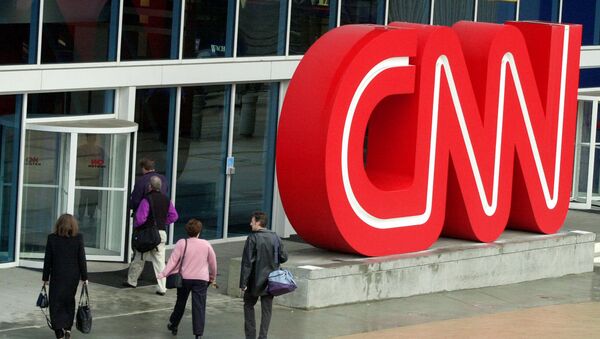MOSCOW, November 11 (RIA Novosti) — CNN International is to stop broadcasting on Russian cable networks from December 31, 2014, according to a letter from Turner Broadcasting System Europe (who operate CNN International) as stated by USA Today.
As reported by USA Today, the company stated, “Turner International is assessing distribution options for CNN in Russia in light of recent changes in Russian media legislation. We are bringing our existing distribution relationships to an end. We hope to re-enter the market in due course, and will notify our partners of any update about resuming these services."
Cable distributors were notified about the move in a letter from Turner International. One distributor, Akado, said it had received the notification. VimpelCom, another distributor, has also confirmed being notified and said it hoped that CNN would be back in Russia next year.
The Russian newspaper Vedomosti reports that some experts have linked the departure to the increased difficulty in obtaining a license from Roskomnadzor. Another suggested it is due to a drop in advertising.
USA Today, citing the newspaper Vedomosti, said that in 2009 Roskomnadzor, the Federal Service for Supervision of Communications, Information Technology and Mass Media, had begun inspecting foreign stations operating in Russia more closely, requiring them to obtain a local broadcasting license within six months.
But according to Rossiyskaya Gazetta, the Office stated that this is not relevant to CNN which "is free to obtain a license to broadcast in the Russian Federation in compliance with the established rules of law."
For many viewers around the world, CNN is free-to-air, though some pay television providers bundle it into their programming packages, or issue a virtual channel to the FTA version on the same satellite. In Russia, CNN has never been free-to-air, and was available only through pay TV bundles.
CNN and Turner Broadcasting have explicitly stated the reason for their decision, reports Rossiyskaya Gazetta, but some American media feel that the withdrawal is due to amendments made by the Russian government to the “Advertising Law” banning advertisements on pay-television in Russia.
Further on that Rossiyskaya Gazetta recalls that in October 2014, Russian President Vladimir Putin signed a law that reduces the limit on foreign ownership in the Russian media from 50 to 20 percent. In comparison, the US has foreign capital ownership limits of 25 percent on television and radio stations, although in October 2013, the Federal Communications Commission has the right to revise this restriction on a case-by-case basis.


